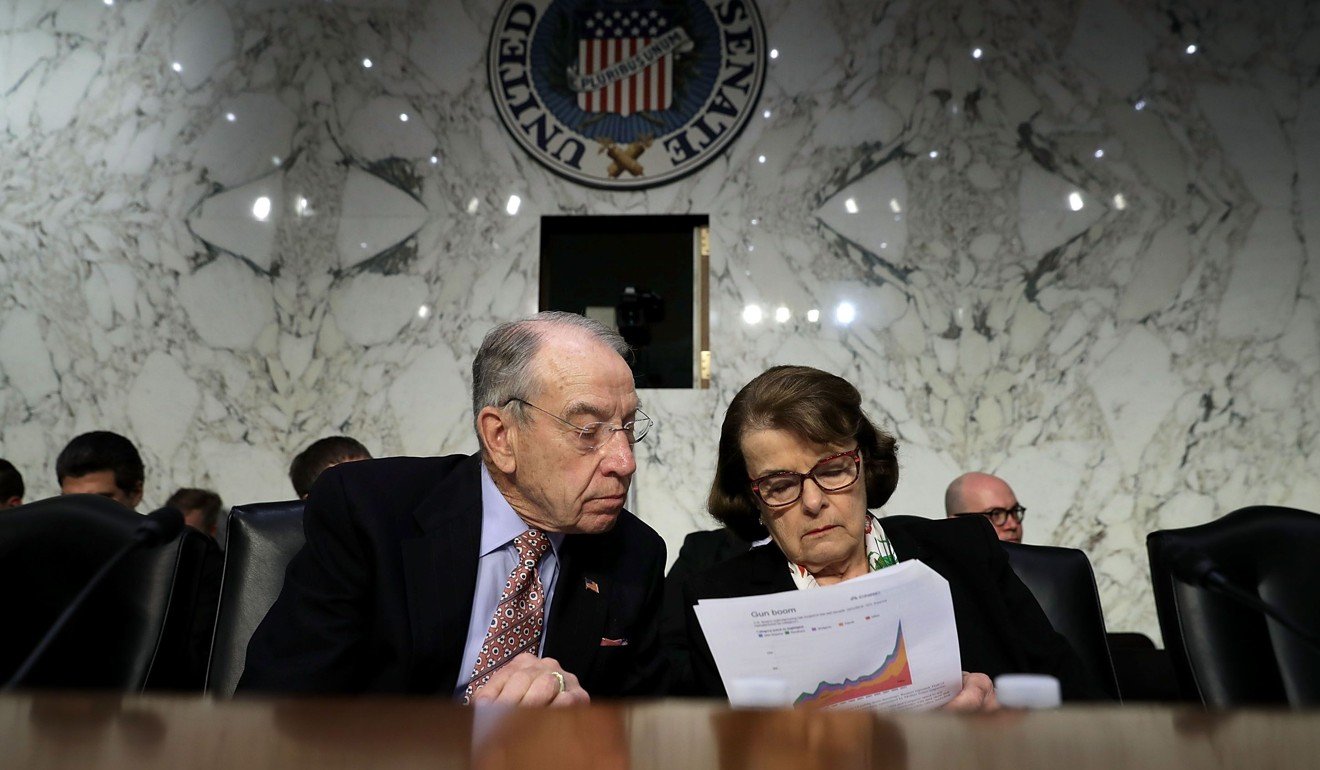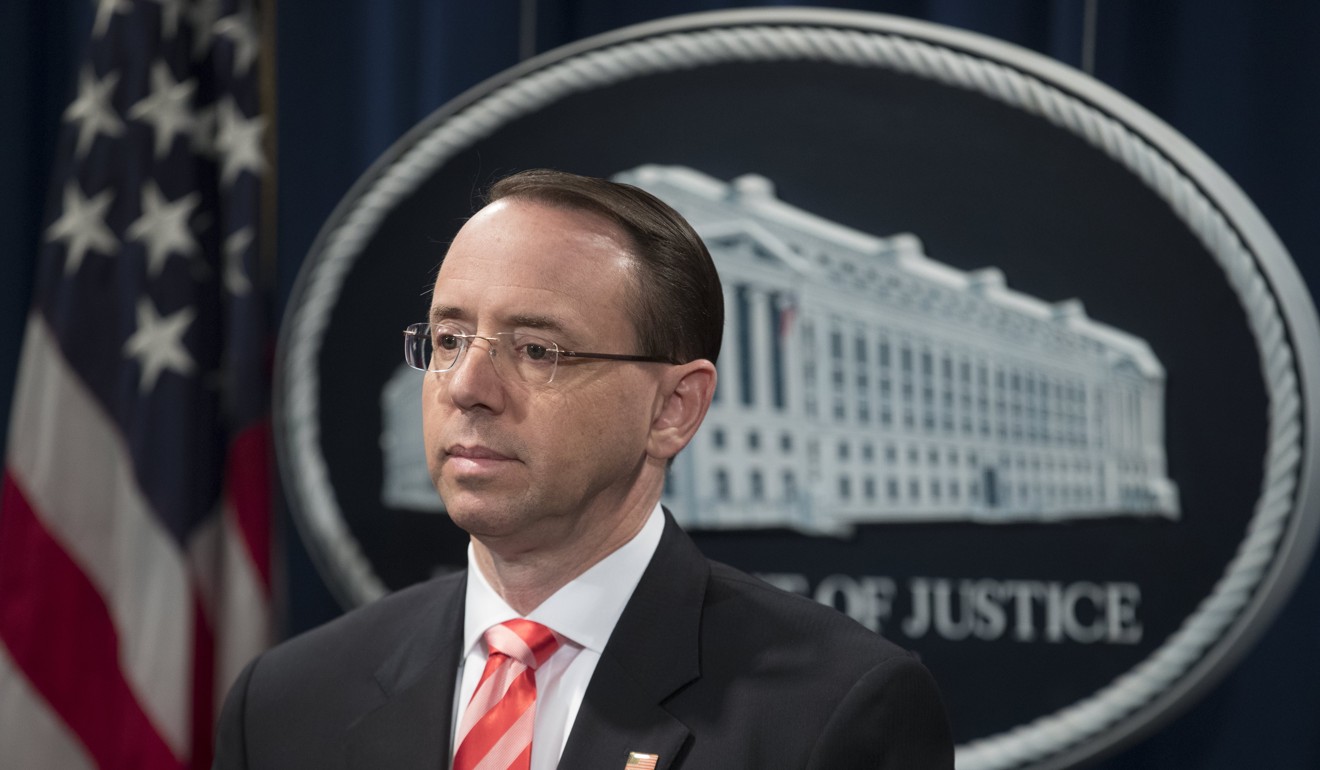
US Congress will vote on bill to protect Robert Mueller from being fired by Donald Trump – if the bill gets that far
Legislation designed to protect Special Counsel Robert Mueller from a sudden firing by US President Donald Trump is expected to get a committee vote before the end of the month, but its path forward is difficult, as partisan disagreements over the bill are already surfacing.
The legislation was introduced this week as Trump escalated his criticism of the special counsel, and the committee is expected to vote on the legislation on April 26, Senate Judiciary Chairman Chuck Grassley (Republican, Iowa) said on Thursday.
Grassley has not endorsed the bill, and said he has concerns that it is unconstitutional. But he said at an unrelated committee hearing that he believes the full committee should vote on it.
The legislation was introduced by Republicans Thom Tillis of North Carolina and Lindsey Graham of South Carolina and Democrats Chris Coons of Delaware and Cory Booker of New Jersey – who are all members of the Judiciary panel.
It would write into law the existing Justice Department regulations that say a special counsel can only be fired for good cause and by a senior Justice Department official. It would also give any special counsel a 10-day window to seek expedited judicial review of a firing.
The bill’s bipartisan introduction signals escalating worries in Congress as Trump has fumed about an FBI raid of the office of his personal lawyer, Michael Cohen, and called Mueller’s Russia investigation “an attack on our country.”
Trump has also privately pondered firing Deputy Attorney General Rod Rosenstein, who is overseeing Mueller’s investigation, and mused that he has the authority to fire Mueller directly.
Despite congressional concerns, the legislation faces several roadblocks.
Grassley indicated that some Republicans on the committee oppose it, and Senate Majority Leader Mitch McConnell, R-Ky., has shown little interest, saying earlier this week that he doesn’t think Mueller will be fired.
Trump decries ‘corrupt’ Russia probe as reason for ‘bad blood’
Trump decries ‘corrupt’ Russia probe as reason for ‘bad blood’
Democrats have already said they are wary of an amendment that Grassley plans to offer to the bill, even though they say they haven’t seen it.
California Senator Dianne Feinstein, the top Democrat on the Judiciary panel, said in a statement that she was concerned the amendment “could undermine the investigation.”
In prepared remarks issued at the beginning of a hearing Thursday, Grassley said the amendment would require the attorney general to give a detailed report to Congress “justifying significant decisions involving the special counsel, including the firing of the special counsel.”

According to a Republican committee aide, the amendment is also expected to require that Congress be notified before the removal of a special counsel with a significant lead time.
The aide declined to be named because the amendment has not yet been introduced.
Grassley said the vote had been pushed back for a week because of Feinstein’s objections.
“I’m at a loss to see how a call for the administration to be more transparent about decisions involving the special counsel – including any decision to fire the special counsel or curtail his investigation – would undermine the Mueller investigation,” Grassley said in the prepared statement.
'Total witch-hunt': Donald Trump fumes as FBI raids lawyer’s office
He did not deliver those prepared remarks at Thursday’s hearing, though, instead saying he and Feinstein had worked out an agreement on timing for a vote. Feinstein was also conciliatory, saying she was open to holding the vote before April 26.
Democratic Sen. Dick Durbin of Illinois tried for a committee vote on a resolution expressing the panel’s support for both Mueller and Rosenstein. But Grassley balked, saying he supports both men but hadn’t been given notice of the resolution.

At the hearing, Tillis noted that he had taken “heat” from fellow Republicans over the bill. He insisted that the timing of the bill’s introduction this week was the result of months of negotiations and said he doesn’t believe Trump will move to fire Mueller, based on his own discussions.
“Some people want to portray what we are doing now as some sort of quick action to prevent the removal of the special counsel because his termination is imminent,” Tillis said. “I don’t believe that.”
On the House side, Democrats introduced a companion bill to the bipartisan Senate measure Thursday. But there was no indication that majority Republicans would take it up.

